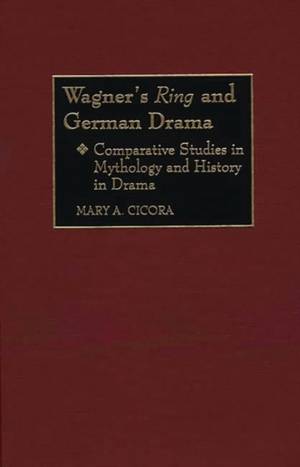
- Retrait gratuit dans votre magasin Club
- 7.000.000 titres dans notre catalogue
- Payer en toute sécurité
- Toujours un magasin près de chez vous
- Retrait gratuit dans votre magasin Club
- 7.000.000 titres dans notre catalogue
- Payer en toute sécurité
- Toujours un magasin près de chez vous
127,45 €
Description
Wagner's Ring, an important phenomenon of the German drama tradition, is situated and examined alongside other major works of the canon. Wagner defines tragedy as a mythological drama. The theoretical foundation of the Ring is a complex dialectic of history and myth. By contrasting the Ring with the dramas of Schiller, Hebbel, Hofmannsthal, and Brecht different facets of Wagner's work are uniquely highlighted beyond theoretical generalizations or broad overviews. This series of comparisons offers fresh insight into the interrelationships of the Ring with the previous German drama tradition, and also investigates its influence on twentieth-century drama and opera.
Scholars of German literature and culture will appreciate this innovative interpretation and study of the Ring. New ideas proposed include the suggestions that Schiller's Wallenstein trilogy might have served as a covert source for the Ring and that Ariadne auf Naxos and Mahagonny represent parodies of the Ring. The theory underlying the Ring will attract musicologists and interdisciplinary literary scholars interested in the interrelationship between words and music and literature and opera.Spécifications
Parties prenantes
- Auteur(s) :
- Editeur:
Contenu
- Nombre de pages :
- 200
- Langue:
- Anglais
- Collection :
- Tome:
- n° 52
Caractéristiques
- EAN:
- 9780313305290
- Date de parution :
- 30-01-99
- Format:
- Livre relié
- Format numérique:
- Genaaid
- Dimensions :
- 163 mm x 243 mm
- Poids :
- 480 g







